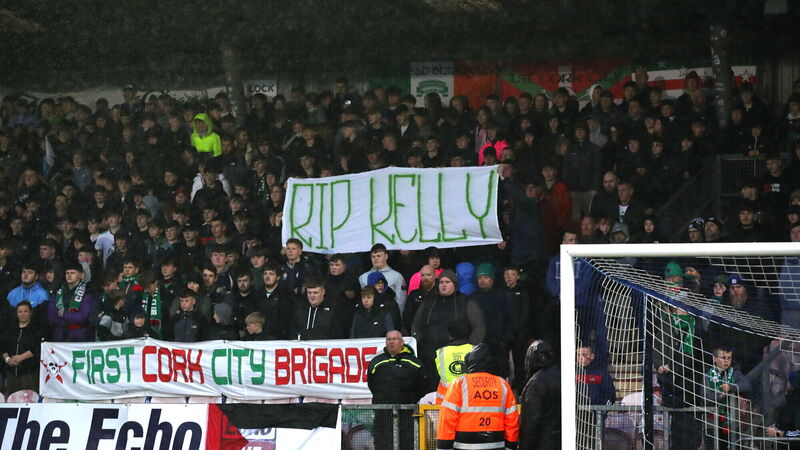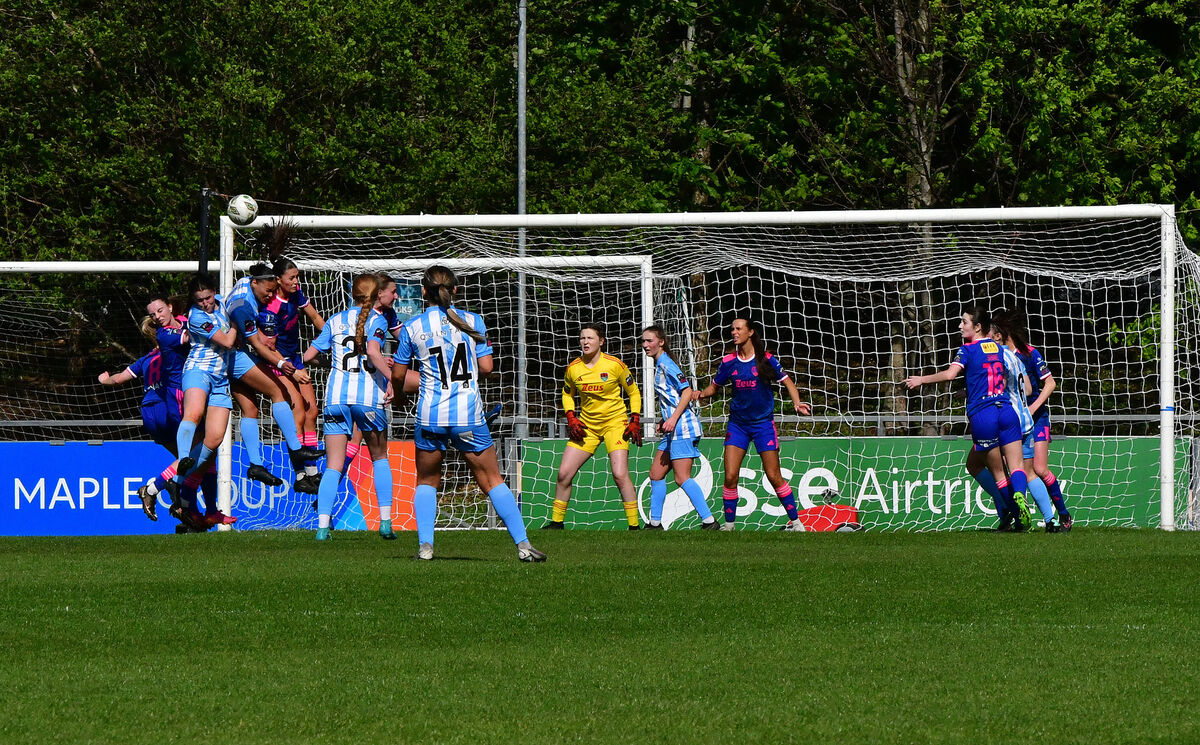Local teams and Cork City suffering from the closure of Turner’s Cross

Cork City supporters hold up a banner in memory of the late Kelly Healy, wife of former Cork City player and manager Colin, and mother of player Arran, before the last game at Turner's Cross. Picture: Michael P Ryan/Sportsfile
FOR all involved, it was years in the making and a definitive line was drawn over the overarching Cork soccer story.
Cork City Women were finally going to call Turner’s Cross their home ground. No longer would there be fixtures in Bishopstown or venues across the county.
The two senior teams would be one; and lining out at the spiritual home of football on Leeside. “We want to have a one club mentality,” was how then manager Rónán Collins described the move, and these sentiments were reflected by the squad.
Becky Cassin was captain at the time and she called the homecoming ‘huge’ when speaking to RTÉ. Three years later, and both sides of the club are locked out after the Munster Football Association closed Turner’s Cross over the state of the pitch.
Their decision came just days after the first Cork derby of the season was played in the pouring rain, a major factor in the pitch cutting up.

The wider issue isn’t about Cork City and where matches will be played; fixtures can be reversed like the meeting with DLR Waves earlier this month in the Women’s Premier Division. The problem is the circumstances that created this situation, and what can be done to rectify them.
The last 12 months have seen the postponement of fixtures become a common occurrence, with the condition of the pitch often cited as the reason.
These announcements plagued the 2023 season for both Cork City teams, and it affected an underage international qualifying tournament last autumn. That meant the Republic of Ireland U17s had to play Albania in Fermoy instead of Turner’s Cross, and this resulted in a delayed kick-off in north Cork.
Thankfully, the qualifier was played without incident, but the feeling that a pattern was developing was real.
Cork City Women are arguably the biggest casualty of the situation, the last few matches of their 2023 season had to be played in Bishopstown. This run continued in the spring, with a fixture against Wexford in the Avenir Sports All-Island Cup reversed last March and the same happened against DLR Waves.
What started as a necessary move is now a symbolic step back, so much so that it threatens to undo the work done to put the women on the same surface as the men back in 2021.
PRESSURE
Everything comes back to the pitch, which has taken a battering because the weather and possible overuse. Last year saw 60+ matches take place at the venue between the two Cork City teams, various cup finals, and internationals.
This concentration cannot be underestimated in causing wear and tear, and conversations now need to take place about regularly playing games around the county, in grounds like St Colman’s Park or the Mardyke.
It might seem harsh to deny players an opportunity to play at Turner’s Cross, but the alternative could lead to a repeat of the worst-case scenario which was realised when the ground was closed at the beginning of April. That was a sad moment for Cork soccer, and the game itself in Ireland as the biggest single-use stadium for the sport outside of Dublin was forced to close its doors.
The next stadium of its kind is the RSC in Waterford, meaning the country’s second-biggest county is without a top-level facility for football. And while discussions take place on how to repair the Turner’s Cross pitch, there’s a possibility of the Republic of Ireland Women’s team coming to Cork for a Euro 2025 qualifier against France in the summer.
This adds another dimension to the crisis, as the pitch will need to be at its absolute best for a game of that magnitude to make events like it a regular thing in the south of Ireland.
Cork sport is already struggling from an athletics point of view because of the closure of the running track at the Mardyke, and the county needs a good news infrastructure story.
Again, wear and tear was the reason given for shutting the gate.
Once is an occurrence, twice is the beginning of a pattern and the only logical way to improve things is to de-centralise and to develop existing facilities.
The FAI want to do this, an €853 investment plan was made public by the organisation last June. They want to create a ‘modern, fit-for-purpose football infrastructure and industry’ but time is running out.










 App?
App?










